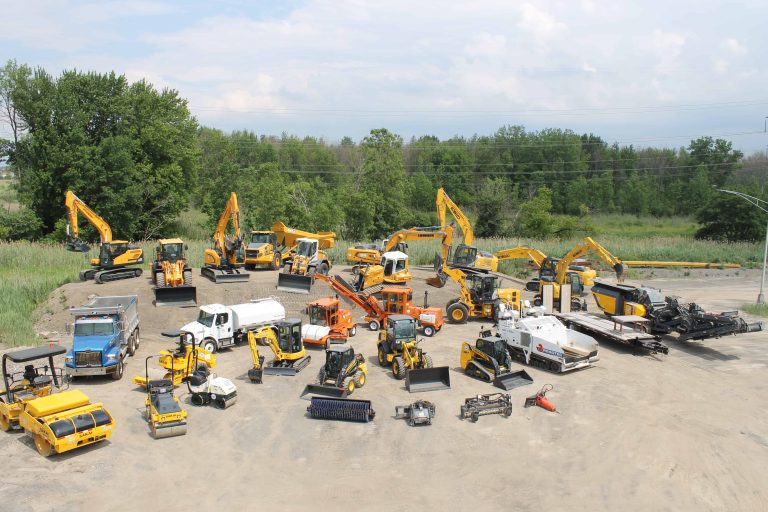Boom Lift Rental: Budget Friendly and Reliable Lifts for Any Kind Of Task
Boom Lift Rental: Budget Friendly and Reliable Lifts for Any Kind Of Task
Blog Article
Maximize Your Spending Plan by Comprehending the Costs Related To Building Tools Services
Comprehending the complete extent of expenses linked with building tools services is important for maximizing your spending plan. What strategies can be utilized to effectively manage these costs and guarantee an extra efficient rental experience?
Summary of Rental Expenses
When thinking about construction devices services, recognizing the associated costs is paramount for effective budgeting and project preparation. Rental expenses can differ considerably based upon numerous variables, including equipment type, period of service, and place. The initial rental charge usually shows the equipment's market need and its linked functional capabilities, influencing the general cost.
In addition to the base rental rate, secondary expenses might occur, such as transportation charges, gas surcharges, and upkeep charges. It is vital to account for these added expenses to precisely examine the overall expense of renting out devices. The rental duration can affect prices; longer services might qualify for discounted rates, while temporary leasings might sustain higher day-to-day charges.

Breakdown of Rental Rates
An extensive understanding of rental prices is important for service providers and project managers intending to maximize their budget plans. Rental rates for building devices commonly contain several elements, including base prices, time-based fees, and usage fees.
Base rates are the core costs connected with the leasing of the equipment, usually figured out by the type and dimension of the machinery. These rates can differ considerably, influenced by variables such as equipment demand, availability, and local market patterns. Time-based fees, which may be daily, weekly, or monthly, serve to fit different task timelines and rental periods.
Furthermore, rental prices may consist of use fees, which are relevant when devices is utilized past a defined threshold, making certain that the rental business can represent damage. Seasonal demand changes can likewise impact rental rates, with peak building seasons usually regulating higher costs.
Additionally, recognizing the rental firm's plans concerning maintenance and insurance policy can supply additional understanding right into the general expense structure. By evaluating these parts, specialists can make informed choices, guaranteeing the choice of rental equipment lines up with both project requirements and budget plan restrictions.
Added Costs to Think About
Understanding the intricacies of extra charges is crucial for specialists to manage their general service costs effectively. Beyond the standard rental prices, different supplementary fees can considerably impact the total expense of devices service. These charges typically consist of distribution and pick-up costs, which can differ based upon distance and logistics associated with transferring the equipment to and from the work site.
Additionally, some rental companies might impose fuel surcharges if the devices is returned with much less fuel than when rented out. It is likewise important to be conscious of potential cleansing costs, especially for specific devices that calls for extensive maintenance after usage.

Extensively assessing the rental arrangement and clarifying these extra charges in advance can aid professionals ensure and stay clear of unexpected costs that budgets remain intact throughout the task lifecycle.
Upkeep and Repair Expenditures
Normal repair and maintenance expenses are often forgotten variables that can substantially influence the overall cost of construction devices rentals. When renting out devices, it is critical to consider not only the rental fees yet likewise the prospective expenses connected with maintaining the equipment in optimum operating problem.
Lots of rental companies consist of standard maintenance as component of the rental agreement; nevertheless, more unanticipated failures or comprehensive repair services can cause additional expenses. It's important to evaluate the rental agreement very carefully to recognize what maintenance services are covered and what responsibilities fall on the tenant.
Moreover, equipment that is not properly maintained can lead to inefficiencies at work site, possibly increasing and creating delays task prices. To alleviate these threats, it is a good idea to perform normal examinations and keep open interaction with the rental service provider concerning any concerns that arise throughout usage.
Insurance Coverage and Liability Costs
Insurance and obligation expenses are important parts that can significantly influence the overall expenditure of building and construction equipment rentals (heavy equipment rental). These costs ensure that both the rental business and the customer are secured from potential economic losses developing from accidents, damages, or burglary during the rental duration

Additionally, customers need to know any deductibles or exclusions in the insurance coverage, as these can affect possible out-of-pocket costs. Understanding the conditions of any kind of insurance protection is vital to stay clear of unanticipated prices. Ultimately, budgeting for insurance and responsibility expenses can help make sure a smoother rental experience and secure versus financial threats related to building and construction jobs.
Verdict
In final thought, a thorough understanding of the costs associated with building tools services is important for efficient spending plan management. Ultimately, notified decision-making concerning devices services check my source contributes to the overall success of building endeavors.
Rental expenses can vary substantially based on numerous variables, including devices kind, period of service, and location (mini excavator rental). The rental duration can impact rates; longer services might qualify for discounted prices, while short-term rentals could incur greater everyday charges
By carrying out extensive research and involving with respectable rental companies, service providers can successfully navigate the intricacies of rental pricing, eventually maximizing their monetary sources.
Beyond the standard rental rates, numerous supplemental charges can substantially impact the complete cost of devices service. Rental business usually supply liability insurance policy that covers injuries to third events or damage to residential property, while devices damages insurance can cover the expense of fixings or replacement if the leased devices is harmed.
Report this page